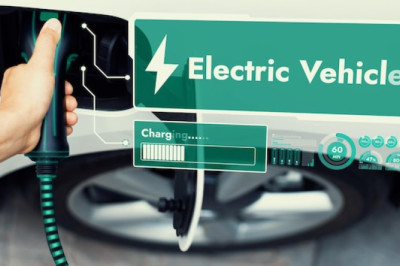As global warming continues to escalate, the frequency and intensity of heatwaves are also on the rise. This environmental shift poses significant challenges for various technologies, including electric vehicles (EVs). EV batteries, which are crucial for the performance and longevity of these vehicles, can be particularly vulnerable to extreme temperatures. In this article, we will explore how global warming and heatwaves affect EV batteries and what measures can be taken to mitigate these impacts.
Decreased Battery Efficiency
High temperatures can significantly reduce the efficiency of EV batteries. When exposed to excessive heat, the chemical reactions within the battery cells accelerate, leading to increased internal resistance. This results in a loss of energy that would otherwise be used to power the vehicle. Consequently, drivers may notice a decrease in the range of their EVs during hot weather conditions. Manufacturers are working on developing more heat-resistant battery materials, but current models still face efficiency issues in extreme heat.
Accelerated Battery Degradation
Heatwaves can accelerate the degradation process of EV batteries. Prolonged exposure to high temperatures can cause the electrolyte solution within the battery to break down more quickly. This leads to a reduction in the overall lifespan of the battery. Over time, the capacity of the battery diminishes, requiring more frequent recharges and eventually necessitating a costly replacement. To combat this, some EV manufacturers are incorporating advanced cooling systems to help maintain optimal battery temperatures.
Increased Risk of Thermal Runaway
Thermal runaway is a dangerous condition where an increase in temperature causes a reaction that further increases the temperature, potentially leading to a fire or explosion. High ambient temperatures during heatwaves can exacerbate this risk in EV batteries. If the battery's cooling system fails or is insufficient, the internal temperature can reach critical levels, triggering thermal runaway. Ensuring robust thermal management systems and regular maintenance checks can help mitigate this risk.
Impact on Charging Times
Extreme heat can also affect the charging times of EV batteries. High temperatures can cause the battery management system to limit the charging rate to prevent overheating, resulting in longer charging times. This can be particularly inconvenient for drivers who rely on quick charging stations. Some EVs come equipped with pre-conditioning features that cool the battery before charging, but this is not yet a standard feature across all models.
Strain on Electrical Grid
During heatwaves, the demand for electricity often spikes due to increased use of air conditioning and cooling systems. This added strain on the electrical grid can impact the availability and reliability of charging infrastructure for EVs. In some cases, it may lead to power outages or reduced charging speeds. As the adoption of EVs grows, it's crucial to develop more resilient and efficient electrical grids to support both residential and commercial charging needs.
Potential Solutions and Innovations
To address the challenges posed by global warming and heatwaves, researchers and manufacturers are exploring various solutions. These include the development of solid-state batteries that are less sensitive to temperature fluctuations, advanced cooling systems, and improved battery management software. Additionally, integrating renewable energy sources into the grid can help balance the increased demand during heatwaves. Public awareness and policy initiatives aimed at reducing carbon emissions can also play a role in mitigating the broader impacts of global warming on EV technology.












Comments
0 comment